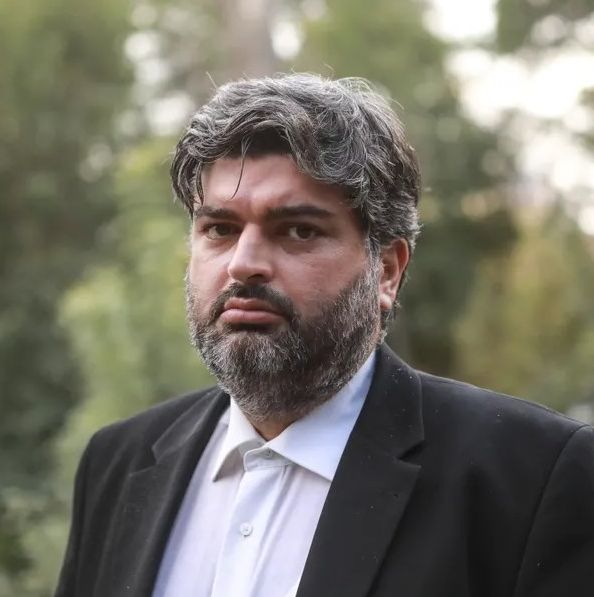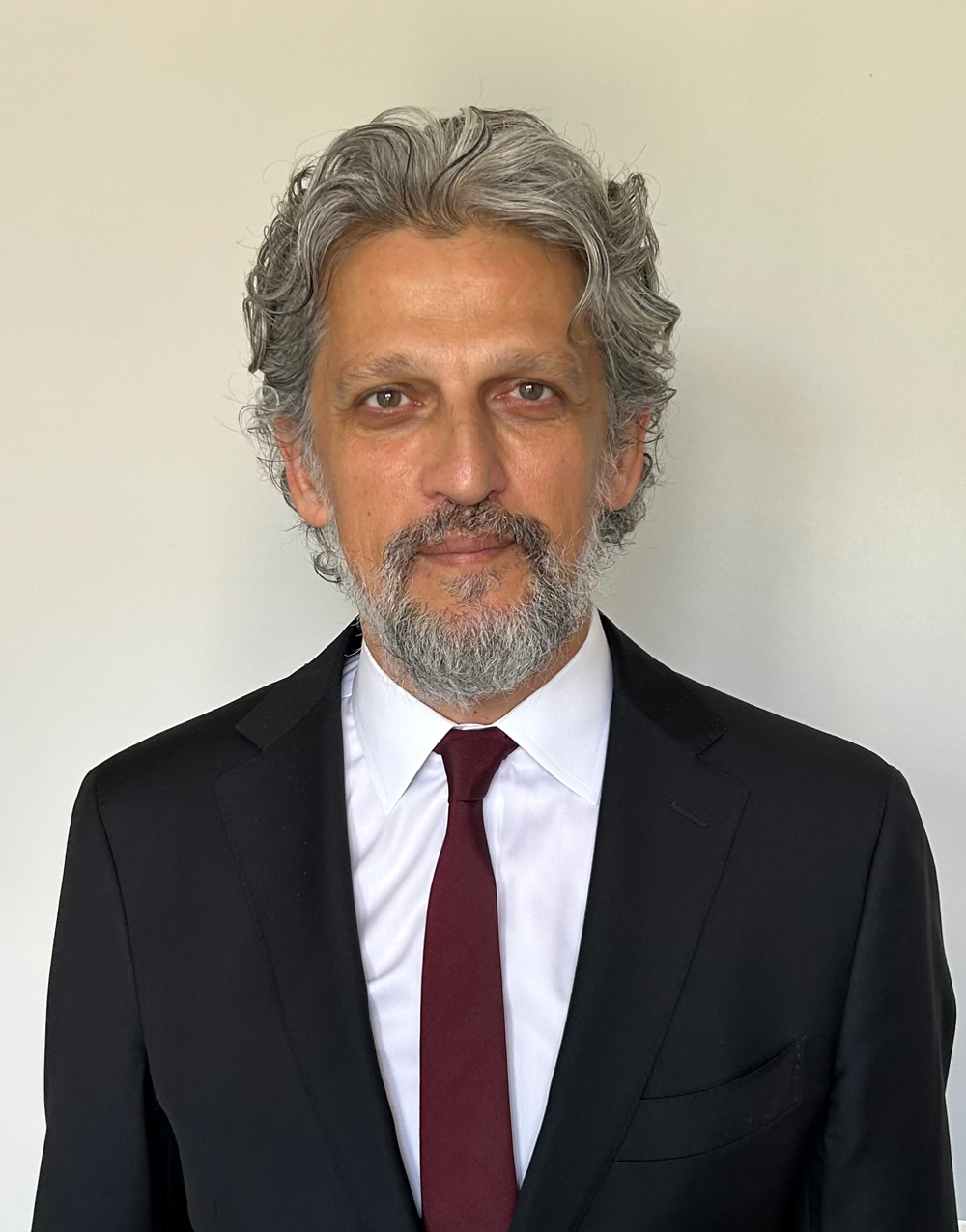The EU lacks leadership and strategic planning in the South Caucasus, while the United States is leading the charge. To secure its geopolitical interests, Brussels must invest in new connectivity for the region.
Zaur Shiriyev
{
"authors": [
"William J. J. Perry"
],
"type": "legacyinthemedia",
"centerAffiliationAll": "",
"centers": [
"Carnegie Endowment for International Peace"
],
"collections": [],
"englishNewsletterAll": "",
"nonEnglishNewsletterAll": "",
"primaryCenter": "Carnegie Endowment for International Peace",
"programAffiliation": "",
"programs": [
"Russia and Eurasia"
],
"projects": [],
"regions": [
"North America",
"United States",
"Caucasus",
"Russia"
],
"topics": [
"Security",
"Military",
"Foreign Policy"
]
}
REQUIRED IMAGE
Both the Bush administration and the Putin administration have apparently made the decision that they can achieve their counterterrorism goals without broad international support. Both governments have erred in that judgment. However, there is time to reverse this decision by reviving cooperation between the United States and Russia.
Source: Moscow Times
Faced with the deadly menace posed by transnational terror organizations, the nations of the world must redouble their cooperative efforts. The tasks ahead -- to disrupt terror groups and preempt their attacks -- require intense coordination among a multitude of national intelligence, national law enforcement, and military organizations. Unprecedented cooperation among all of the nuclear powers is needed to prevent nuclear weapons from falling into the hands of terror groups.
Yet, paradoxically, the two nations that have suffered the worst terror attacks -- the United States and Russia -- are regressing more and more to national strategies. They have been unwilling to make the extra effort to reap the benefits of real international cooperation.
I believe that the United States' strategic vision of the war on terrorism is flawed. I fear it is following the isolationist path of the United States after World War I rather than pursuing the broad international programs it successfully undertook to protect its security interests after World War II.
The terrorists posing the greatest threat to the United States and to Russia are transnational, with cells in many different countries. To support their training and operations, they raise funds in many countries and maintain these in international bank accounts. They use satellite-based television as their principal means of propaganda, the World Wide Web as their principal means of communication and international airlines as their principal means of transportation. Their efforts to get weapons of mass destruction are based on penetrating the weakest security links among the nations possessing these weapons, and their successful guerrilla operations depend on their ability to get support from sympathizers among the more than 1 billion Islamic people around the world.
An international operation is clearly needed to successfully deal with this threat. But the United States is not making full use of other nations and international institutions to dry up the terrorists' funds in international bank accounts, to gain intelligence on their planning for future attacks, to penetrate their cells so that it has a chance of preempting these attacks, to organize all nuclear powers with effective security of their nuclear weapons and fissile material, and to conduct counterinsurgency operations wherever they are needed. Dealing effectively with transnational terror groups that operate with impunity across borders requires an international operation with the full cooperation of allies and partners in Europe and Asia.
This is not "mission impossible." In 1993, the United States was able to get all of the former members of the Warsaw Pact to join up with NATO in forming the Partnership for Peace to cooperate in peacekeeping operations. In 1994, the United States with the full cooperation of Russia was able to negotiate an agreement by which all nuclear weapons were removed from Uzbekistan, Belarus and Kazakhstan and by which substantial improvements were made in the security of nuclear weapons in Russia. In 1995, the United States was able to get an agreement under which NATO took responsibility for the peacekeeping operations in Bosnia, an operation that was believed at the time to be as dangerous and filled with religious and sectarian strife as Iraq today, and it was able to get dozens of non-NATO nations -- notably including Russia -- to join it in that operation.
Securing Russian cooperation required listening to Russian views and making accommodations wherever possible. As U.S. defense secretary, I had to meet with my Russian counterpart four different times before I came to understand how to structure the command in Bosnia in a way acceptable to both Russians and NATO. The general lesson from this example, which is still applicable today, was best expressed by Winston Churchill, who observed during World War II, "The problem with allies is they sometimes have ideas of their own." But in reflecting on that problem, he also said, "The only thing worse than fighting a war with allies is trying to fight a war without allies."
What lessons can we learn from Churchill today? Had the Bush administration understood better the dangers of the post-conflict phase, surely it would have worked harder to get the support of those countries before invading Iraq. In any event, after the war it would have reached out to them and tried to achieve an accommodation that would have allowed their support during the reconstruction phase.
Instead, the administration took the position that any nation that was not with the United States during the war would not have a role in the reconstruction. To compound the problem, the United States did not seek meaningful assistance from the United Nations. Today, in the light of the difficulties experienced in restoring security in Iraq, the administration is reaching out to the United Nations and requesting that it play a major role in the political reconstitution of Iraq, but it is still not working effectively with the governments of France, Germany and Russia.
Just as the United States erred in believing that it did not need more international support in Iraq, so did the Russian government err in believing that it did not need more international support as it reconstituted its government after the Soviet era. The Putin administration believed -- correctly -- that it could turn around the Russian economy without significant assistance from other countries, and it believed that it could deal most effectively with its terrorist threat without interference from other countries. It also apparently believed that moving toward a level of democracy conflicted with the controls necessary for economic recovery and for fighting its terror war. So today we see a Russia that has enjoyed a healthy 7 percent growth rate each of these past five years, but has stopped -- indeed reversed -- its move towards becoming a liberal democracy. This reversal over the long term will have profoundly negative consequences for the Russian economy and for the Russian people, and unquestionably it is setting Russia on a course that will alienate it both from the United States and the European Union.
Both the Bush administration and the Putin administration have apparently made the decision that they can achieve their goals without broad international support. Both governments have erred in that judgment. But it is not too late to correct the judgment, and I fervently hope that both of governments will do so. The most important step in that process is reviving cooperation between the United States and Russia.
William J. Perry, U.S. defense secretary from 1994-97, is a board member of the Carnegie Endowment for International Peace. He contributed this comment to the Moscow Times, the fourth in a series written on the occasion of the Carnegie Moscow Center's 10th anniversary.
Carnegie does not take institutional positions on public policy issues; the views represented herein are those of the author(s) and do not necessarily reflect the views of Carnegie, its staff, or its trustees.
The EU lacks leadership and strategic planning in the South Caucasus, while the United States is leading the charge. To secure its geopolitical interests, Brussels must invest in new connectivity for the region.

Zaur Shiriyev
Instead of a guaranteed ally, the Kremlin now perceives Armenia as yet another hybrid battlefield where it is fighting the West.

Mikayel Zolyan
What happens next can lessen the damage or compound it.

Mariano-Florentino (Tino) Cuéllar
The uprisings showed that foreign military intervention rarely produced democratic breakthroughs.


Amr Hamzawy, Sarah Yerkes
An Armenia-Azerbaijan settlement may be the only realistic test case for making glossy promises a reality.

Garo Paylan